Though the performance is tightly drilled – even the confetti deployment seems studied – passion rings through in moments of cheeky theatricality
Dua Lipa saw it coming. The fireworks and flags and pulsing purple lights, the teenagers on tiptoes scowling at strange adults as they fling their arms in the air like money. When she was a girl, the 28-year-old born to Albanian-Kosovan parents, tells us midway into her debut Glastonbury headline show, she wrote it down – “I will headline Glastonbury” – manifesting the sleeper hits and critical acclaim and now routine awards and No 1s that made this moment inevitable.
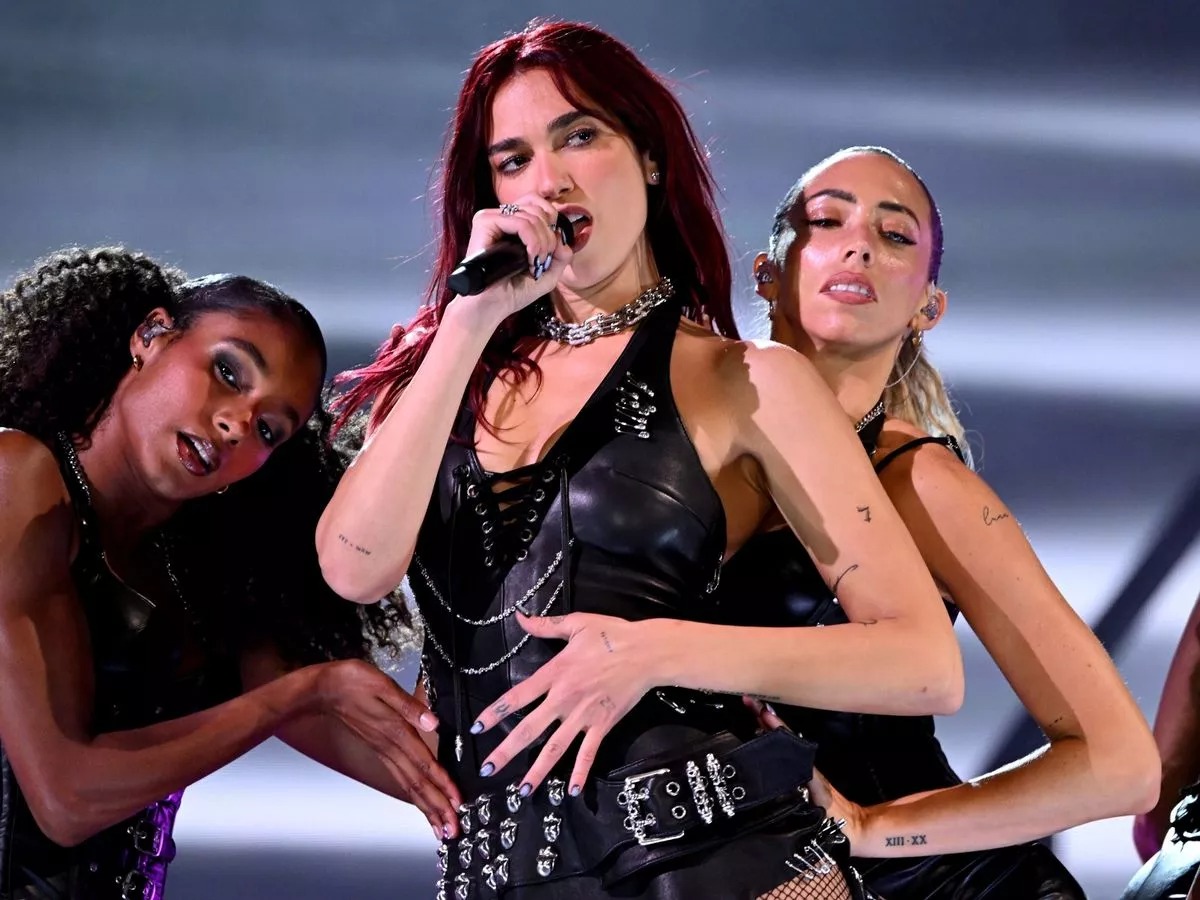
“I was really specific,” she adds after a shy laugh. “I said I wanted to headline the Pyramid Stage on a Friday night, because then I knew I could party for the next two days.” Her voice cracks as she describes the magic – “the power” – of commanding this seemingly infinite crowd. “Little me would just be beside herself right now.”
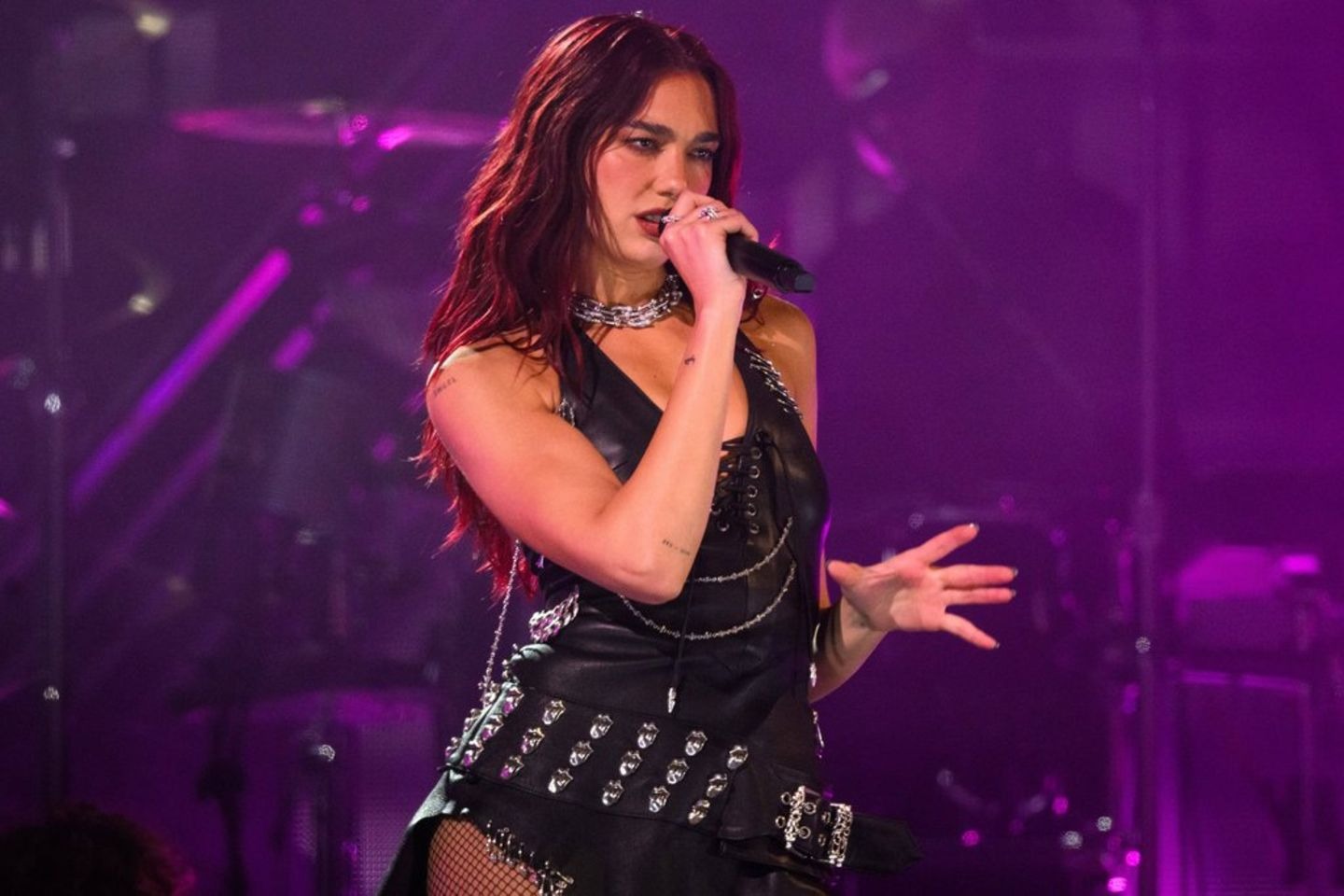
The growing Dua Lipa empire – now encompassing an acting career, a book club, a burgeoning media platform and a podcast featuring giants of high and low culture – shows no signs of slowing, particularly now she has bought back the rights to her music catalogue. Yet behind the cultural dominance, Dua Lipa is as enigmatic as she is ubiquitous. Her arrestingly vague persona (along, perhaps, with her admirable support for geopolitical causes) has stopped her transcending bankable fame to become a true nation’s sweetheart.
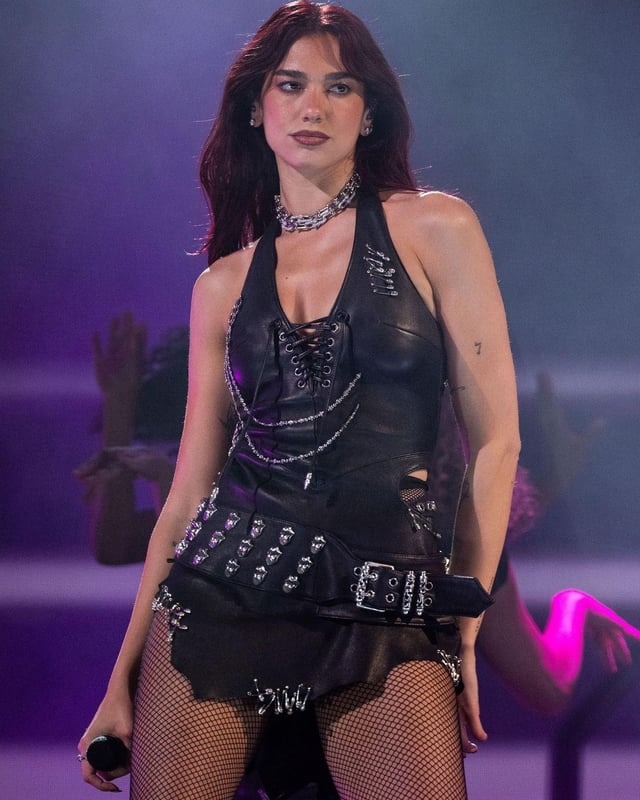
Which may be just how she likes it. More than a straight pop spectacle, Lipa intersperses tonight’s set with nods to underground culture. As a martial drum solo opens the show, leather-clad dancers fling themselves across a pair of metal bridges, like a Swat team sent undercover into a Seventies New York meatpacking district. In a chain-lined leather dress of her own, Lipa zips to centre stage as if propelled by the roller-skates favoured on her last arena tour, barrelling into a party-starting “Training Season”.
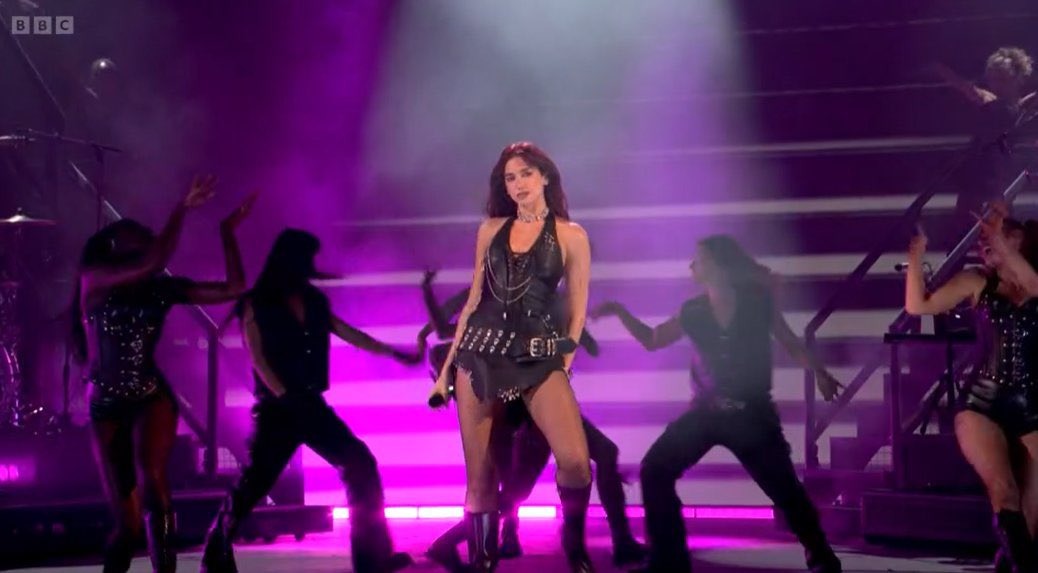
Though the performance is tightly drilled – even the confetti deployment seems studied – passion rings through in moments of cheeky theatricality. Midway into the second verse, she flings back her head with revulsion at the inept exes she has made her muse.
It is no contradiction that many such boyfriends are no doubt in this field screaming along: the gospel of Dua holds that, while guys often suck, that is often fine, and kind of funny. Her mastery is in pairing these tales of woe and self-redemption with music that sounds like accidentally having the best night of your life at the worst club in your hometown.
Her celebration of alternative culture is most readily apparent on “One Kiss” – given a house breakdown worthy of Glastonbury’s wonderfully lurid queer nightlife haunt, NYC Downlow – and “Pretty Please”, revitalised with deliciously dirty funk swing and a breakdancing interlude that squeezes homages to her house, disco and rave roots into two breathtaking minutes of helter-shelter beat switches.
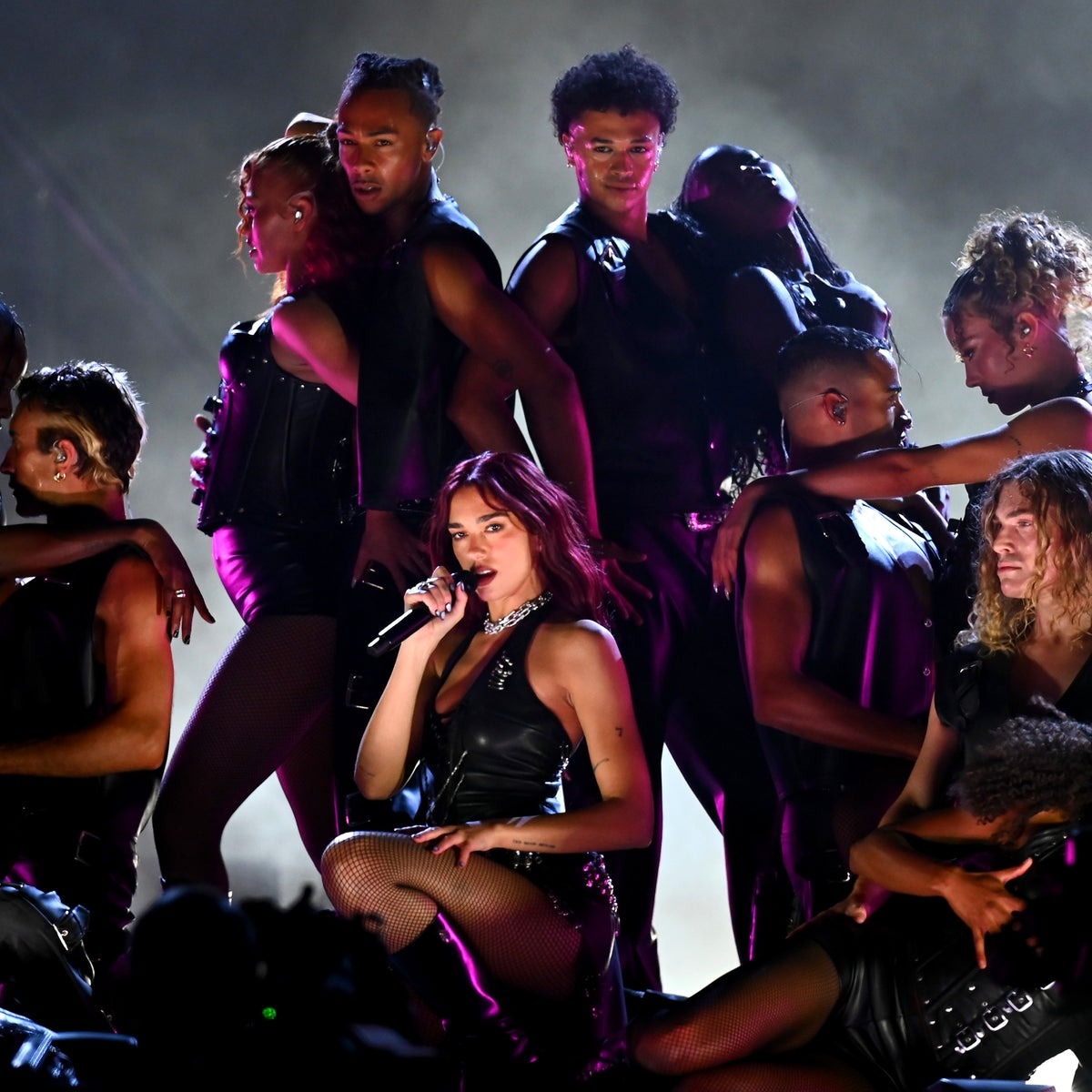
Between all this she finds time to introduce a comically low-key guest appearance: not one of her celeb buddies but an unassuming Kevin Parker – better known as the Australian psych-rock darling Tame Impala – who looks every bit the slacker boyfriend brought home to disappointed parents after their beloved daughter’s gap year. In honour of his contributions to her latest album, Radical Optimism, Parker mooches out in a T-shirt and jeans for an endearingly clumsy duet of his song “The Less I Know the Better”.
Aside from the electrifying opener, new album cuts such as “These Walls“ and “Falling Forever” feel like stodgy, almost defensive inclusions – even closer “Houdini” can’t help but feel anticlimactic after a sensational one-two of “Physical” and “Don’t Start Now”. I can believe, even hope, that Dua Lipa will endure to headline Glastonbury again, but it is harder to imagine these songs surviving as setlist musts.
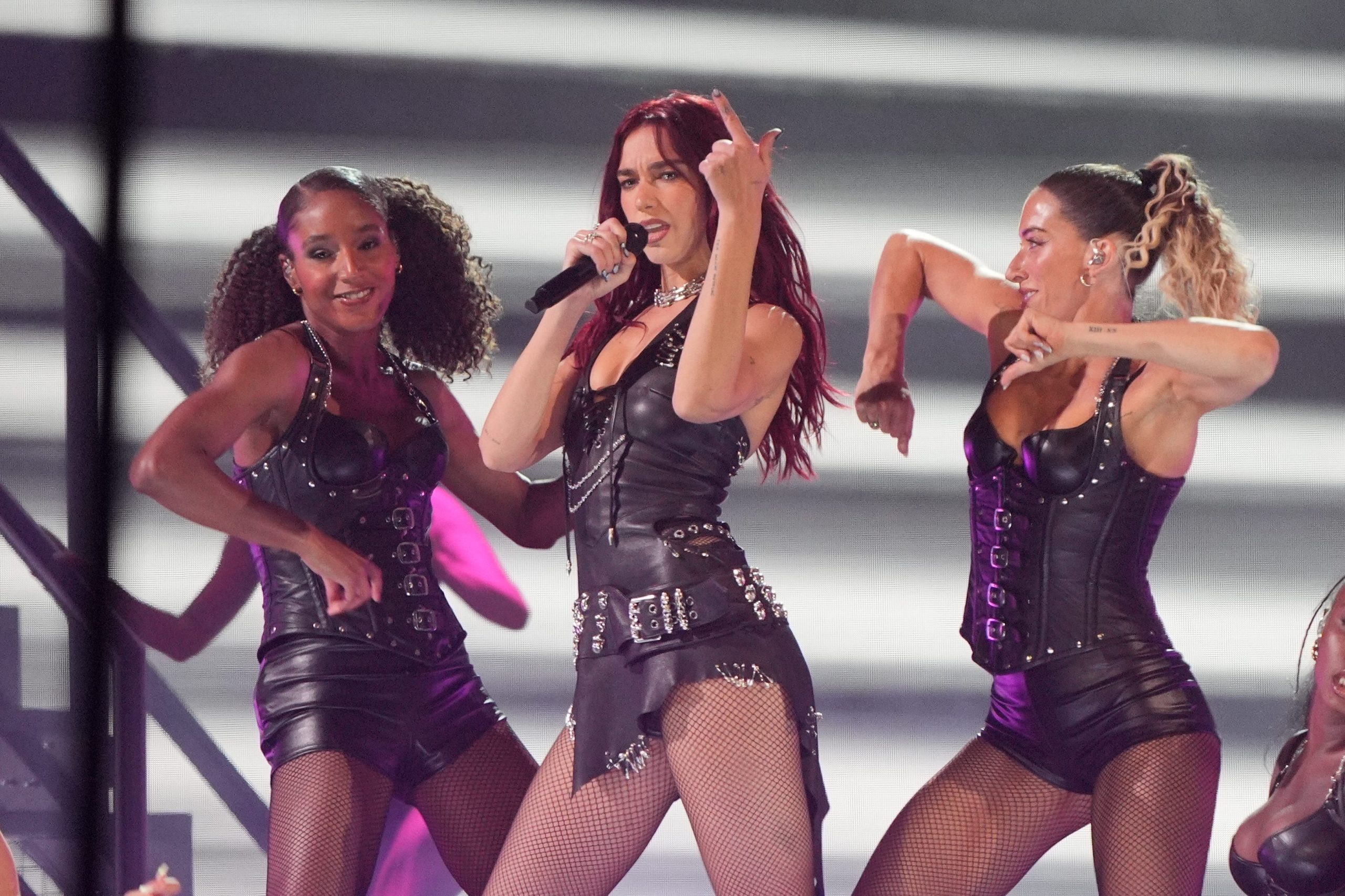
“Guys, you’re making my dreams come true,” she declares during “Be the One”, a cliche that, despite the dips in momentum, makes clear that Lipa understood the assignment: Glastonbury is not just another show, just another festival – it is the moment we have been waiting for, all day, all year, perhaps all our lives. The best headline sets turn this into a reality, even among the sceptical. Dua Lipa does something almost as special: by bearing out her childhood premonition, she makes us witnesses to her own sweetest fantasy.